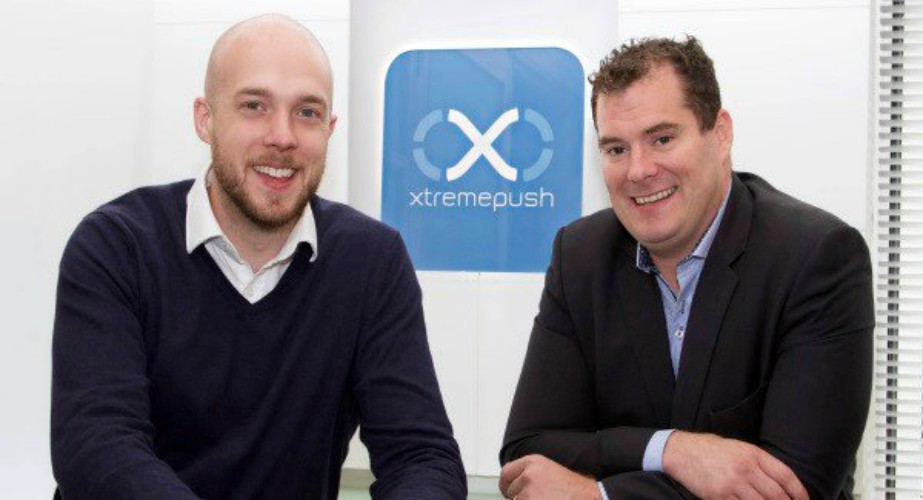EVE – the Electric Vehicle Ecosystem – makes charging stations for electric vehicles as accessible as petrol stations.
EVE does so by creating an ecosystem that drastically increases coverage of charging options for electric car owners. Through the user-friendly app, electric car drivers will always find an available and accessible charging station.
The company was one of 10 start-ups that took part in the LaunchBox accelerator. LaunchBox, in partnership with Bank of Ireland, and managed by experts in Tangent, Trinity’s Ideas Workspace at Trinity College Dublin, provides mentorship, funding, access to alumni and investors, and the ideal collaborative environment to launch new start-up ventures. This is the eighth year of LaunchBox, but the first year that the programme is running online.
“The biggest barrier to widespread EV adoption is the fear that your car is going to run out of battery in the middle of nowhere, at night, with your kids scared and crying in the backseat of your car”
The EVE product is a mobile app, built by a team of highly skilled developers based in Dublin. It will be available to Irish users in a Beta phase in November. If you’d like to be part of the beta test, sign up on www.eve-app.co.
Electric to the core
“At EVE, we believe that the life of an electric car owner shouldn’t revolve around charging their car,” said co-founder Sarah Rust. “The biggest barrier to widespread EV adoption is the fear that your car is going to run out of battery in the middle of nowhere, at night, with your kids scared and crying in the backseat of your car. That’s a real-life situation that we aim to solve by taking on the charging infrastructure for electric cars.
“The problem in the market is this waiting game between consumers and providers of charging infrastructure. Because the stations themselves are very expensive to maintain and marginal revenues are low, charge point operators keep delaying heavy investments until more EVs are out on the road.
“But infrastructure is a prerequisite for that to happen.”
Rust points out that as a direct consequence, today, in Ireland, there are 23 EVs competing for a public charge point, when the European directive is 10 to 1.
“And it’s not just the ratio or how to find them. The more subtle problem is that public infrastructure is concentrated around large cities, creating a disproportionate geographical coverage. With increased domestic travel by car because of Covid-19, that puts current and prospective EV drivers in a serious dilemma: should I risk not finding an available charger on time or should I just rent a diesel for my upcoming trip?”
According to Rust, the charging market is currently estimated at $3bn worldwide but is expected to grow to $89bn by 2030. Ireland is a great starting point.
“There are numerous untapped resources and the Irish EV community has been wonderful in helping us develop the product.”
Electric charge therapy
According to EVE co-founder Oana Rosca almost 90pc of chargers for EVs are installed in private or semi-private locations, such as restaurant, hotels, or homes.
“Our product brings these chargers, which are idle most of the time, into the public infrastructure. By combining public with private infrastructure, we not only increase coverage, but we also provide better geographic distribution and we guarantee availability through a reservation system. We provide service throughout the entire charging session and we make sure chargers are available even in remote locations. In addition, we support local businesses by giving them an avenue to monetize their parking lot charge point and to attract new customers.”
Networking is key to success
Rust and Rosca met while pursuing a postgraduate degree in Entrepreneurship at the Business School in Trinity College Dublin. From the onset, the programme encourages students to work on real-life problems.
“We soon joined forces to tackle the charging infrastructure for electric cars, driven by the determination to do our part in combatting climate change but also because we really, really like electric cars,” Rust said.
Before EVE, Rust worked in the start-up sector and on innovation projects in the automotive industry in Germany. Rosca’s expertise is in product management and in the past years, she has worked with key players in travel tech.
The team is supported by Paul Mulvaney, managing drector at ESB, the largest charge point operator in Ireland, who has been instrumental in providing key insights into the market and in extending theirnetwork.
Sparking up
As non-Irish entrepreneurs in Ireland, Rust and Rosca were absolutely amazed at how the start-up environment works. “There are so many opportunities that it can become overwhelming, from monthly events organised by private companies to governmental support,” says Rust.
“The fact that Trinity College created a Master’s programme specifically for entrepreneurs and the high quality of that curriculum are a testament to the strength of the entrepreneurial ecosystem in Ireland. LaunchBox was a pivotal moment for us. It gave us that much needed early validation and it opened a number of important doors that we wouldn’t have otherwise reached.
“One of the most important aspects we’ve noticed is people’s openness to give you their time, to share their expertise and then introduce you to people that could help you further. We have work experience in Germany, Switzerland, the US, the Czech Republic and Romania and we can wholeheartedly testify that this doesn’t happen anywhere else.”
During LaunchBox EVE raised €50,000 in pre-seed funding.
“This amount will go mostly towards minimal viable product (MVP) development. “Our next round of funding will be in mid-January, when we graduate from class XXVI of Alchemist, one of the leading accelerators in Silicon Valley,” Rust added.
The biggest lesson so far? “Do not confuse customer discovery with sales. When talking to your target audience, at the end of a call where you asked them about their habits and concerns around a particular topic, there is this enormous temptation to happily announce that you have the perfect product for their problems. You will immediately see a polite smile and a nod, followed by compliments about your ‘great idea’.
“It’s much harder to listen, absorb as much information as possible and then identify that one important thing that they didn’t even verbalise but it’s in the subtext of everything they are saying. It’s harder but it’s also more important. That key insight will help you build a better product and ultimately make you a better entrepreneur.”
Their advice for fellow start-up founders? “Fall in love with the problem, not the solution,” recommends Rosca. “While this might sound contradictory, it is actually the most important advice we have ever gotten ourselves. As founders, it is often hard not to be emotionally invested in the idea we have and we might lose focus on what is actually important: the problem we are trying to solve for our customers. It’s easy to believe in a solution and to invest time and effort into it, just to realize during testing that your solution actually doesn’t solve the problem in the first place.
“Our advice,” adds Rust. “Be obsessed with the problem you are solving. Know every angle, every little piece of it. Understanding the problem throughout will ensure that you can tailor your solution to your customers’ needs because that is what it is all about: Developing a solution based on a problem in the market – not the other way around.”
As founders EVE use Trello to keep track of action items and deadlines for themselves. “In addition to that, we make sure we schedule work time in our calendars in between meetings. We found this to be essential early on. When we don’t do that, we can get lost in this spiral of back-to-back meetings and never actually get the chance to act on what we’ve discussed,” said Rust. “With the development team, we use the scrum methodology and we communicate over Slack.”
Pictured at top: EVE co-founders Oana Rosca and Sarah Rust
Written by John Kennedy (john.kennedy3@boi.com)
Published: 15 September, 2020






